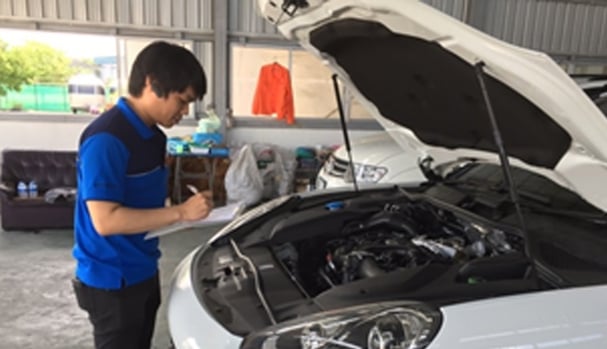Tire SNI Approval (Indonesian National Standard) for Indonesian Market

The tire industry in Indonesia is bound by SNI Regulation numbers 0098:2012, 0099:2012, 0100:2012, 0101:2012 and 6700:2012. Decree 03/BIM/PER/01/2014 from the Ministry of the Industry Republic of Indonesia stipulates that local or imported tires must have an SNI certificate for each tire category. The auditing process for tires includes the checking of client compliance with the ISO 9001:2008 Quality Management System, validation of product and manufacturing process knowledge, and sampling for testing in the tire laboratory facility. Various testing includes marking check, dimension verification, bead unseating test, breaking energy test, high speed and endurance test.
Auditing Challenges
The most common challenges encountered with this type of audit are markings which do not comply with the relevant regulation and inconsistencies in following the quality control plan. To avoid these problems, the client should understand the regulation, in particular the marking requirements, and regularly update the quality control plan according to the actual process.
Long-term Solutions
On one occasion during a tire surveillance audit, the client informed the auditor that the tire product did not pass the test according to SNI standards. In order to provide proper assistance to the client, the auditor conducted a root cause analysis and proposed corrective actions to fully address the finding. The client has reported that since then, they have never had the same problem and the tires continue to meet the standards requirements.
CoC for Vehicle Imports in Thailand

Since the beginning of 2016, the implementation of the CO2 Reduction – New Excise Tax and Eco-Sticker scheme has subjected vehicles sold in Thailand to an excise tax based on CO2 emissions, E85-gasohol compatibility and fuel efficiency rather than engine size. This requires all manufacturers and importers of passenger vehicles to display an eco-sticker on the windscreens of all new cars so that buyers are aware of the CO2 rating, emissions, safety and fuel economy figures.
Mandatory Requirements
The CO2 reduction audit ensures that the inspected vehicle matches the Certificate of Conformity (CoC) issued by the manufacturer or WVTA approval, as well as the fuel consumption and CO2 emissions standards. It is applicable to non-authorized importers. The audit checks that the VIN, engine number, tire size and exhaust emission systems are correct, and includes vehicle inspection, CoC verification, and CoC issuing.
Auditing Challenges
At times the customer does not have facilities such as good lighting or a car lifter. In such cases, it is very difficult to take the necessary photos. Thus, it is suggested that clients prepare the equipment necessary to ensure a seamless audit process.
TÜV Rheinland auditors are trained to always give value to each audit, provide long-term solutions to client problems, and ensure proper compliance with the requirements of the standards being tested.
Find out more about the latest trending topics in the industry our quarterly customer newsletter tuv.communication:



